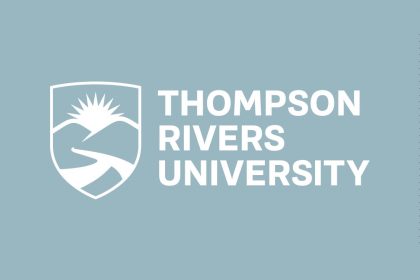Post by 2020-2021 BCcampus Research Fellows Christina Chakanyuka, Leanne Poitras Kelly, and Tamarah Braithwaite
Since the Truth and Reconciliation Commission of Canada (TRC) released its Calls to Action in 2015, academic institutions have been called to take actions to redress the legacy of residential schools and advance the process of reconciliation in Canada. According to United Nations Declaration on the Rights of Indigenous Peoples (UNDRIP), the TRC called for the recognition and implementation of Indigenous healthcare rights.
Regarding the education of healthcare providers in Canada, the TRC called for skills-based training in intercultural competency, conflict resolution, human rights, and anti-racism. Furthermore, the TRC recommended all medical and nursing students be required to take an Indigenous health course that deals with the history and legacy of residential schools, UNDRIP, treaties and Aboriginal rights, and Indigenous teachings and practices.
It is not really about the situation of Indigenous peoples in this country,
but it is about the character and honor of a nation
to have created such conditions of inequity.
It is about the mindset of a human community of people
refusing to honor the rights of other human communities.
…
Philosophically,
there is an expectation from our children and grandchildren
that we resolve these issues and
to leave them a better world than the one we found.
– Willie Ermine, The Ethical Space of Engagement, 2007
Since 2016, the University of Victoria (UVic) School of Nursing has offered NURS 484: Understanding Indigenous Health and Wellbeing. It is now a core required course that all undergraduate nursing students take in their third year. Students learn about the historical legacy of colonization and its impact on the contemporary reality of Indigenous health in Canada. Students also complete learning activities that deal with anti-racism and decolonizing nursing practice. After completing this course, students are expected to incorporate this knowledge into their clinical practice to ensure provision of culturally safe care.
As Indigenous nurse educators, we know that student nurses are taking the necessary theory courses to learn culturally safe nursing practice. We are less certain about how students incorporate this knowledge and information into their practical experience. While we have anecdotal information regarding tensions experienced by students when in practice, our research aims to identify themes that will assist in developing instructional strategies that enhance understanding and praxis of the knowledge for the benefit of both service providers and clients.
With support from the Jamie Cassels Undergraduate Research Awards program, we were able to provide a unique mentor-engaged research opportunity for fourth-year UVic bachelor of science in nursing student Tamarah Braithwaite. The 2020–21 BCcampus Research Fellowship allowed us to hire an administrative research assistant to serve as a neutral third party to ensure student anonymity when inviting participation and gathering data.
“File of Uncertainties” is a research project that aims to elicit themes that allow us to better understand barriers and supports when incorporating decolonizing and anti-racist knowledge into nursing practice. We used a short online questionnaire to ask fourth-year nursing students about their experiences in clinical placements after taking NURS 484. We asked if they experienced cultural tensions when caring for Indigenous patients and what skills from their classroom learning they were able to apply in practice. We used qualitative thematic analysis of participant answers to open-ended journal-style questions to identify themes of racialization, nursing practice, internal uncertainty, and tension in nursing practice as well as strengths and supports used by students to integrate knowledge. We extracted data from Likert-style questions to identify trends in support of the qualitative data.
Themes that emerged from the data included the prevalence of witnessing racism and trauma in the healthcare system, lack of power and voice as a student nurse, mistrust in the healthcare system, and associated uncertainty. The participant narratives consistently showed that while the Indigenous health class was useful and provided applicable tools such as a trauma-informed-care approach and knowledge of positionality, racial identity, power differentials, and advocacy, many students still expressed a gap in their nursing education and knowledge in that they don’t always know how to have difficult conversations. It appears that uncertainty exists around opening communication about topics such as residential schools and intergenerational trauma. Several students expressed not knowing what to say, how to answer, how many questions to ask, or what questions to ask to provide culturally safe care and avoid retraumatizing actions.
Despite over 20 years of cultural safety education in nursing, Indigenous peoples continue to face unique barriers to equitable healthcare access that include pervasive systemic racism, as detailed in the final report of the 2020 inquiry into racism in B.C. healthcare, In Plain Sight: Addressing Indigenous-Specific Racism and Discrimination in B.C. Health Care. The British Columbia College of Nursing Professionals states that “nurses play an essential role in addressing racism at the individual and systems level” in its updated (2020)Entry-Level Competencies for Registered Nurses.
Continued research-in-action is required to further clarify intention, improve teaching/learning, and establish wise practices for cultural safety education in nursing that are more inclusive of the TRC’s call for skills-based training in intercultural competency, conflict resolution, human rights, and anti-racism. Dynamic and intergenerational knowledge translation is required to enhance nurses’ understanding of UNDRIP, the TRC’s calls to action, and recommendations from the In Plain Sight report across the discipline of nursing. We must all commit to reconciliation and decolonization in nursing as a forever journey.
